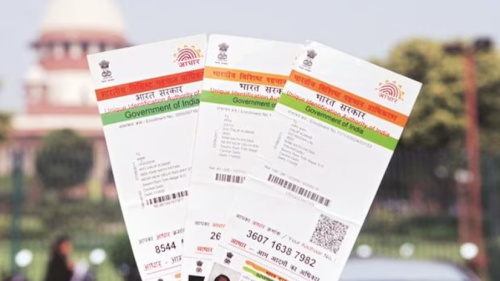Gen Z’s Deflation Strategy: Cash Hoarding Drives Demand for Ultra-Short-Term Insurance Products

“Are young people really avoiding risk, or is that just a myth?” In today’s highly volatile market environment, Gen Z is often labeled as aggressive, risk-seeking, and tech-savvy when it comes to investing. Yet, recent trends are turning this stereotype on its head. A global survey of individuals aged 18 to 27 reveals a surprising shift in their 2025 investment strategies—cash has become king. Saving now takes clear priority over growth stocks or crypto. This reversal highlights a rational shift among young people facing economic uncertainty: hoard cash, reduce risk, and aim for financial stability.
A Conservative Shift in a Tumultuous Economy
Gen Z came of age during a period riddled with crises. The shadow of the 2008 global financial crisis still lingers, followed by the COVID-19 pandemic and intensifying geopolitical instability. High unemployment rates, stagnant wages, inflation, and murky economic forecasts have all chipped away at their sense of security. Frequent layoffs and limited income growth have made financial stability a more pressing goal than chasing high-risk investments.
As a result, saving money has become a defensive instinct. A recent study shows that 39% of Gen Z allocates a significant portion of their assets to cash or savings accounts—the highest rate among all age groups. By comparison, only 27% invest in growth stocks, and just 21% are involved in cryptocurrencies—both much lower than among Millennials or Gen X.
From Get-Rich-Quick Dreams to a Quest for Security
Gen Z’s financial philosophy is undergoing a profound transformation. Having lived through pandemics, climate disasters, and job market volatility, they now value control over their present circumstances more than speculative gains. Rather than chasing get-rich-quick schemes, they prefer building financial buffers through cash savings. This behavior reflects both a rational response to uncertainty and a form of psychological risk mitigation.
Interestingly, saving has evolved into a kind of social trend. On platforms like TikTok and Instagram, challenges like “52-week saving plans” and “daily savings check-ins” are gaining traction. Financial planning has turned into a collective activity and even a lifestyle. It’s not just about managing money—it’s about building community and showcasing financial literacy.
Technology is further reshaping Gen Z’s financial habits. Web3 innovations have blurred the line between spending and investing. Tools like Fortune Earnings Coupons (FECs) transform purchases into tradable digital assets, enabling users to earn while they spend and making finance feel more interactive and rewarding.
The Rise of Ultra-Short-Term Insurance: Instant Finance for an Instant World
Gen Z’s preference for liquid assets is closely tied to their need for flexibility. This explains the growing popularity of money market funds, flexible savings plans, and penalty-free insurance options—products that prioritize liquidity and ease of access.
Ultra-short-term insurance products have seen rapid adoption. Designed for flexibility and convenience, these offerings include features like low entry thresholds, daily interest accrual, and the ability to cancel policies at any time without penalty. Quick-pay annuities are a prime example: pay for three to five years and begin receiving steady payouts shortly after. By the fifth year, cash value often exceeds the premium paid—offering both short-term security and long-term flexibility.
For those willing to consider slightly longer-term options, interest-bearing whole life policies are becoming appealing. Despite lower returns than in the past, they still outperform regular deposits and offer policy reduction options, making them a solid choice for medium-term financial stability.
Rational Anxiety: A Behavioral Finance Perspective
Gen Z isn’t pessimistic about the future—they’re just focused on controlling the present. For them, financial planning is no longer just about wealth accumulation; it’s about emotional resilience and a sense of agency. Over 80% of Gen Z discuss finance with friends, using it as a tool to foster relationships and build self-confidence. In this way, personal finance has become a new kind of social currency.
Behavioral finance suggests that Gen Z is shifting from “FOMO” (Fear of Missing Out) to “FOCO” (Focus on Control). Rather than locking their money into volatile, long-term assets, they prefer strategies with lower risk, short-term returns, and easy exit options. This marks a clear departure from high-stakes investing toward more calculated, responsive financial behavior.
A Youth-Led Transformation in the Insurance Industry
As Gen Z’s influence grows, the insurance sector is racing to adapt. The old model of complicated policies with rigid timelines no longer resonates with young consumers.
Insurers are experimenting with new, engaging ways to appeal to younger audiences. These include gamified policy experiences like spin-to-win rewards, challenges, and virtual tree-planting activities that turn insurance into something fun and interactive. One-click sign-ups, instant payouts, and streamlined user interfaces are becoming standard. On social media, insurers are crafting relatable content—positioning themselves as brands that understand your lifestyle and your anxiety.
Content marketing has also become central. Whether it’s healthy living tips, travel advice, or personal finance education, insurers are embedding product messages into everyday lifestyle content—introducing Gen Z to insurance in a way that feels organic and accessible.
It’s Not That Gen Z Isn’t Buying Insurance—They’re Just Buying Smarter
Gen Z hasn’t given up on the future—they’re simply approaching it more cautiously. Their preferences lean toward products that offer flexibility, low risk, and emotional reassurance. Rather than pursuing high returns at any cost, they’re building financial ecosystems that offer stability and peace of mind.
In this context, ultra-short-term insurance products and flexible financial tools align perfectly with Gen Z’s core desire: to live with a sense of control in an uncertain world.
Insurance, once seen as protection for the future, has evolved into something else entirely—a source of security for the present.



